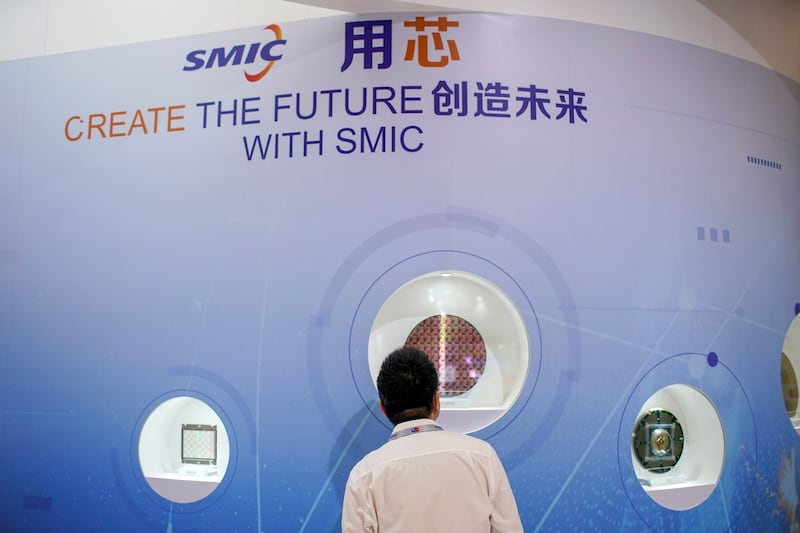Ten U.S. lawmakers including four House committee chairs have asked the Biden administration to explain how two Chinese telecoms giants developed advanced microchips in spite of U.S. export controls.
Shenzhen-based Huawei this month released a new flagship smartphone, the Huawei Mate 60 Pro, which it said uses a new chip produced using 7-nanometer lithographyby Chinese chipmaker Semiconductor Manufacturing International Corporation, or SMIC.
The process, which uses microscopic rays of light to etch circuits onto silicone chips, was meant to be out-of-reach for Chinese chipmakers for years due to the Biden administration's export controls banning the sale to Chinese companies of machinery needed to achieve it.
The announcement of the phone reportedly shocked industry insiders, who did not understand how SMIC was able to produce the chip.
‘Perplexed’
A public letter released on Thursday by chairs of the House committees on foreign affairs, energy and commerce, armed services and China says they are "extremely troubled and perplexed" about the Commerce Department's "inability to effectively write and enforce export control rules against violators, especially China."
The letter singles out Alan Estevez, under secretary of commerce for the Bureau of Industry and Security, and says the committees “for more than two years” warned of “loopholes in BIS rules attempting, unsuccessfully, to restrict technology to Huawei and SMIC.”
“BIS has continued to grant licenses to Chinese Communist Party (CCP) controlled companies, such as SMIC, worth hundreds of billions of dollars,” it says. “These companies support the CCP’s military and have been responsible for manufacturing semiconductors that power Huawei’s 5G devices, in violation of BIS’ export controls.”

It also calls for the enforcement of export controls to ensure SMIC can no longer gain access to restricted U.S.-made technologies.
The letter is signed by Rep. Michael McCaul, chair of the Foreign Affairs Committee, Rep. Cathy McMorris Rodgers, chair of the Energy and Commerce Committee, Mike Rogers, chair of the Armed Services Committee, and Mike Gallagher, chair of the Select Committee on China, as well as Reps. Ann Wagner, Robert Latta, Young Kim, Gus Bilirakis, Brian Mast and Morgan Griffith. All are Republicans.
Investigations
National Security Adviser Jake Sullivan also told reporters on Sept. 5 that the U.S. government was still evaluating the SMIC-built chip.
“In terms of characterizing the chip in question, that's something that we need to gain more information from before we make any definitive comments,” Sullivan said, adding that the United States would continue to enforce “a ‘small yard, high fence’ set of technology restrictions focused narrowly on national security concerns.”

A spokesperson for the Bureau of Industry and Security told Radio Free Asia on Friday that the bureau would respond to the letter “via appropriate channels” and seemed to question the chip’s make-up.
They said U.S. " restrictions in place since 2019 have knocked Huawei down and forced it to reinvent itself" at a "substantial" cost.
“We are working to obtain more information on the character and composition of the purported 7nm chip. Let’s be clear: export controls are just one tool in the U.S. government’s toolbox to address the national security threats presented by the PRC,” the spokesperson said, using an acronym for the People’s Republic of China.
“We are continually working to assess and, when appropriate, update our controls based on the dynamic threat environment and we will not hesitate to take appropriate action to protect U.S. national security.”
Edited by Malcolm Foster.
